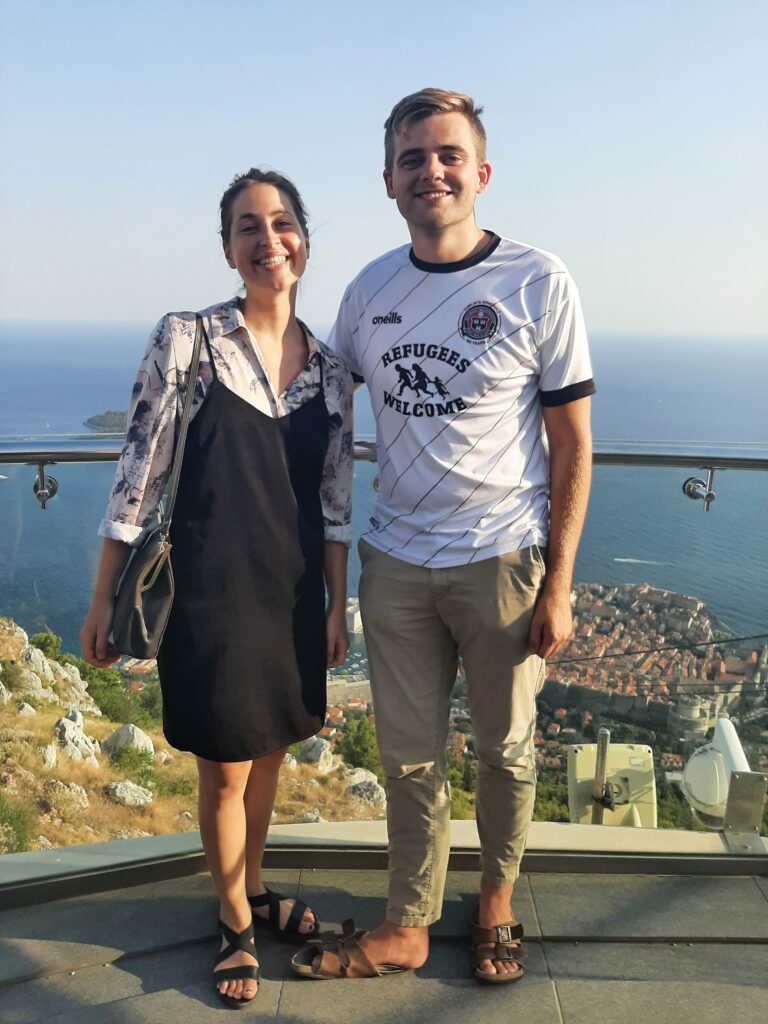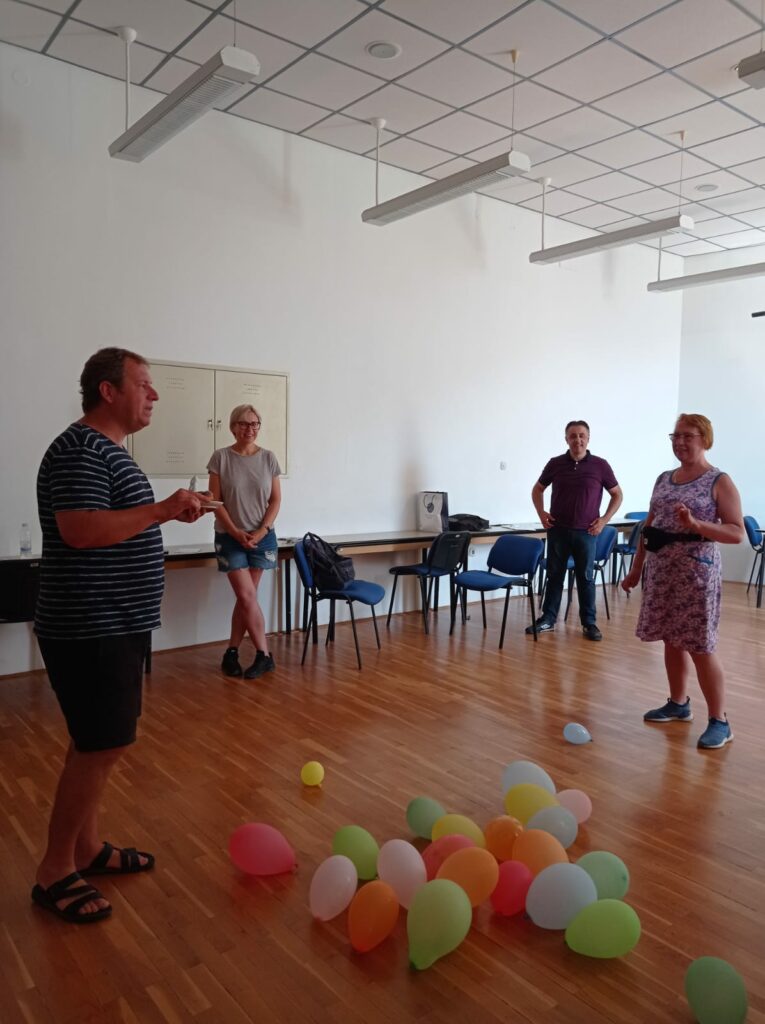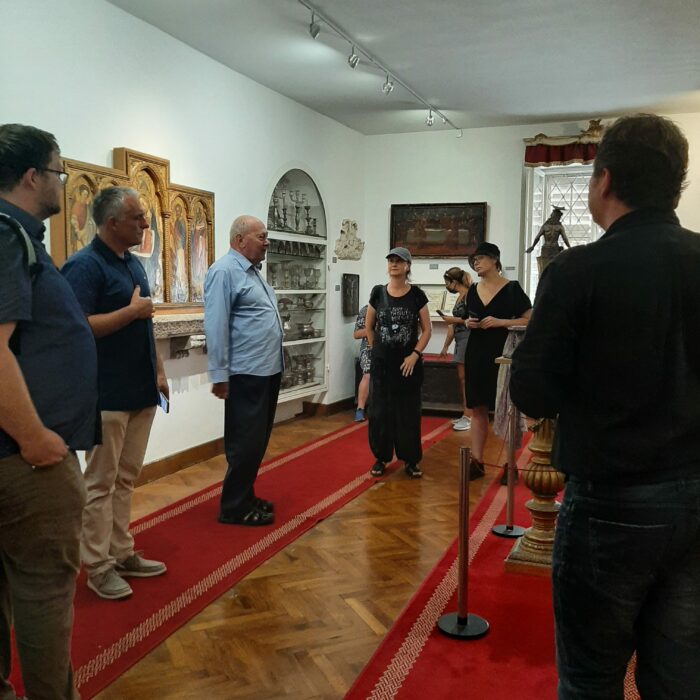| DIALOGUE IN PEACE EDUCATION – DIALOGUE, PEACE-BUILDING AND CONFLICT RESOLUTION METHODS
Our colleagues Maša and Alex recently spent a week in Dubrovnik, Croatia, attending the DiA – Dialogue in Adult Education – Training Lab. The conference took place in IUC – Inter-University Centre Dubrovnik, an independent international centre for advanced studies, hosted by the University of Zagreb. The purpose of the Lab was to test the best practices on the social dialogue and community building gathered by the partnering organisations in the past months. Here are the participants’ reflections!
On the first day of this week-long conference, we had the honour of meeting the mayor of the Korčula island, Ms Nika Silić Maroević. She and her team told us all about the policies her cabinet is implementing, intending to bring back young people to this beautiful island. They are currently developing few different projects, such as providing their citizens with attractive job opportunities, organising different cultural and community-building events, as well as making sure they have an access to the public services which they would otherwise have to seek in the bigger cities on the mainland. We also had the pleasure of receiving a tour of the town, where we learned about the history of Korčula!

We started the official program by meeting Mr Domagoj Hajduković, a member of the Croatian Parliament and Committee on Human and National Minority Rights. Mr Hajduković is active in the field of refugee and migration issues in the Croatian context so we mainly tackled those topics.
The first practice we tested was presented by the Polish partner Stowarzyszenie Dla Ziemi called Songs of Our Neighbours. The goal of this practice is to achieve harmony by singing traditional folk songs, but the main goal is to reach more meaningful harmony between conflicted groups that are doing the activity. The beauty of the practice is lying in learning about each other’s histories through songs, realizing how similar traditions can be, and finding meaningful connections.

To finish the day on the musical note, we had the pleasure of meeting the organisers of the Dubrovnik Summer Festival (Dubrovačke Ljetne Igre), one of the oldest cultural festivals in the region.
We met with the Assistant Artistic Director / Theatre, Mr Saša Božić, who told us about the festival’s history and the importance it has in the community building in Dubrovnik, especially the role of the festival in the community rebuilding after the 1990s period.
We also heard about the project Port of Dreamers. Dubrovnik Summer Festival is one of the partners in this project that deals with the history of migrations on the European continent, which will serve as an inspiration for artists, co-funded by the European Union through Creative Europe – Culture Sub-programme. Not only we met with the organisers, but we also had a chance to attend the unique music program Dubrovnik on a Music Cliff which brings together an exciting ensemble of the best Dubrovnik musicians.


The next day we tested a game for youth developed by the German partner CRN – Comparative Research Networktogether with UNAEDI – Ukrainian Network for Adult Education and Innovation Development. The game is called Conflict Curve and it tackles the course of the conflicts that can arise in real life. It is still in its development phase so this was the perfect occasion for us to playtest it and give our feedback to the creators.
That same day we had an opportunity to try the methods developed by the NGO Plan Be, Plan it Be it from Cyprus. They also presented their project Colour the Court, which engaged youth from the North area and South area of Cyprus in the joint activity of colouring the basketball courts together.
We ended the day with a visit to the Dubrovnik Museum of War, In Fort Imperial on Srđ hill. We received a tour by the museum’s director and heard about the war that marked the end of Yugoslavia and the role of Dubrovnik in it.
The following day was the last day of activities and the official program, but we had a packed schedule again. We tested three methods, starting with the method called Cadavre Exquis presented by the German partner Aufbruch Neukölln.
This activity requires teamwork and collaboration in creation, so it was a perfect way to start our day, because the next method we tested was called Think to Create, introduced to us by UKLO – The Faculty of Security, Skopje. We were asked to come up with a solution for the relevant social issue as a team, using the brainstorming method, which was a good test of our teamwork after working together for a week.
The closing session was facilitated by Crossing Borders in which we presented a storytelling method created to show that everyone has a story to tell and that stories we share can bring us closer, which is important when trying to find a conflict resolution method.


On our last day of the training lab, we shared our final reflections on methods we tested and gave examples of how we plan to use them in our organisations. We also worked on the development of the eBook we are planning to publish as one of the outcomes of the project.
The eBook will be a compilation of the 50 best practices on conflict resolution, social dialogue and community building, and we are hoping to bring these methods into the light so the European educators, youth workers and NGOs can use is as a guide in their future activities.
The week spent in Dubrovnik with the partners was an amazing experience! We worked hard and made big progress in the project, but we also had an opportunity to learn real-life examples of community (re)building in Croatia. We will cherish the impact that this meeting had on us and take it with us in our journey ahead, as our work is just starting and there is still a lot to do and learn!
Dialogue in Adult Education


Written by Maša Zupcic
European Solidarity Corps Volunteer


